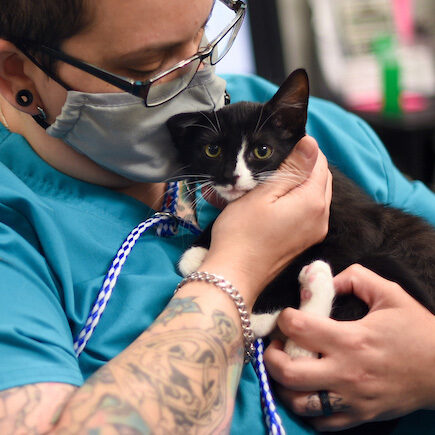Quality of Life Evaluation Visit
A quality of life exam for a dog or cat is an assessment conducted by a veterinarian to evaluate the overall well-being of a pet, particularly when the pet is facing chronic illness, aging, or terminal conditions. The goal is to determine the pet's comfort, happiness, and general health status to guide decisions about ongoing care, possible treatments, or humane euthanasia.
Key aspects of a quality of life exam include:
- Physical Health: Assessing pain, mobility, appetite, hydration, and any signs of illness or discomfort.
- Behavior: Observing changes in behavior, such as increased aggression, withdrawal, or anxiety.
- Daily Activities: Evaluating the pet's ability to perform daily activities like eating, drinking, grooming, and moving around.
- Mental Health: Considering the pet's mental alertness and engagement with their environment and family.
- Hygiene: Checking for any issues with incontinence or cleanliness that might affect the pet's quality of life.
The veterinarian may use a quality of life scale or checklist to provide a structured assessment, helping pet owners make informed decisions about their pet's care.



